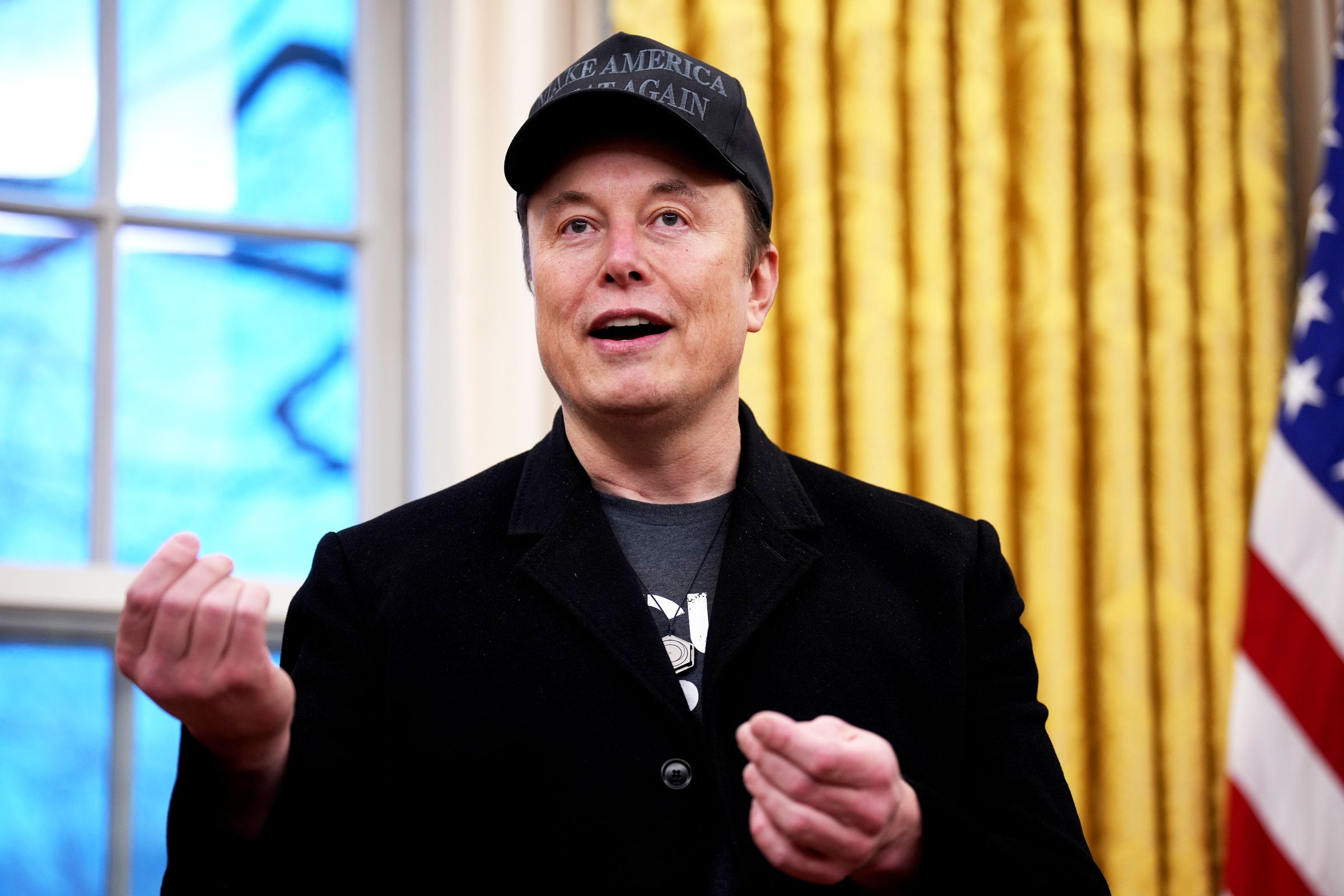Elon Musk will not be fully exiting the so-called Department of Government Efficiency (DOGE)—and its activities are only intensifying. On Friday, President Donald Trump threw cold water on the idea that Musk would fully disappear from DOGE and the White House forever. “Elon’s really not leaving,” Trump said in a joint press conference with Musk in the Oval Office. “He’s gonna be back and forth. It’s his baby, he’s going to be doing a lot of things.”
“I expect to continue to provide advice,” Musk, wearing a black hat with DOGE written on it and a black shirt reading “DOGEFATHER,” said during Friday’s press conference, while noting that his legal limit for service as a special government employee was coming to an end. “I expect to remain a friend and an advisor.”
Federal workers from at least six agencies tell WIRED that DOGE-style work is escalating in their departments.
Both new and familiar DOGE faces have also been recently detailed to new agencies, according to sources. Members of Musk’s early DOGE team, including Luke Farritor, Gavin Kliger, Edward Coristine, and Sam Corcos, have met with a number of departments and agencies—including the Treasury, the Office of Management and Budget, and the FBI—in recent days, seemingly continuing business as usual, WIRED has learned.
The team also appears to be actively recruiting, according to documents viewed by WIRED.
Over the last week, federal workers have also been asked to urgently review and potentially cancel contracts across the government. Trump appeared to confirm that contracts were under review at Friday’s press conference: “Many contracts, Elon, right now are being looked at,” he said.
Some agencies have also received visits from DOGE at their headquarters, WIRED has learned.
“This doesn’t sound like a group that is going away, it sounds like one that’s digging in like a parasite,” an IT specialist at the Department of Agriculture (USDA) tells WIRED.
Since DOGE first began its work in Washington in late January, its representatives have been eager to cut what they see as superfluous spending in government. In recent weeks, the pressure to slash and cancel contracts, specifically focused on workforce management and IT, has drastically increased, multiple sources at a variety of agencies tell WIRED.
“Biggest thing is we are being asked to cut as many contracts for software and labor as possible,” one tech worker at the Department of the Interior (DOI) tells WIRED, saying that the stated goal, as they understand it, has been “to save money and efficiency in consolidated IT.”
“We are cutting developers, telecom, server admins, call center staff etc.,” the DOI source says. “Some things were bloated and could use the cut. Others are going to suffer, and our service to the public is going to be degraded.”
Employees at the Department of Health and Human Services (HHS), and all the agencies under its umbrella, were told that contracts would have to go through a new approval process called the Departmental Efficiency Review (DER). Any requisitioning or contract approval is paused until after workers submit a form to start the DER and the deputy secretary’s office reviews the funding, according to an email about the process obtained by WIRED. The email also states that the review will flag any contracts that appear to be expensive and excessive.
Urgent contract oversight is also occurring at the Department of Labor (DOL). “There is a LOT of pressure to end these contracts as soon as possible, within the next few days,” a source at the DOL told WIRED on Thursday.
At other agencies, like the USDA and the Treasury, some tech workers were recently notified that they may be asked to interview with someone at DOGE for an unspecified reason. “Just last week we were warned of possible contact from DOGE for interviews,” the USDA IT source says, adding that no one told workers what the interviews would be about. At Treasury, employees were told those who perform “some of the more technical functions” would be pulled into these interviews.
Tech contractors at the Office of Personnel Management (OPM), one of the first agencies DOGE burrowed into, were suddenly let go after returning from the long Memorial Day weekend. Their termination letters credited DOGE with their dismissal.
“The United States Office of Personnel Management (OPM), under the direction of the Department of Government Efficiency (DOGE), has modified the IT services contract with RMCI [an IT contractor] that you support,” the termination letters say. “As a result, it is with regret that your work on the OPM contract will end.”
During Friday’s press conference, Trump gifted Musk what appeared to be a golden key in a box that had a picture of the White House, thanking him for his last few months of government work.
“DOGE is integral to the federal government’s operations, and its mission, as established by the President’s executive order, will continue under the direction of agency and department heads in the Trump administration,” White House spokesperson Harrison Fields tells WIRED. “DOGE has delivered remarkable results at an unprecedented pace, and its work is far from complete.”
United States DOGE Service administrator Amy Gleason did not respond to multiple requests for comment.
“Elon may be stepping away, but DOGE’s mission remains stronger than ever. Exposing reckless, wasteful government spending isn’t about one individual—it’s about a lasting overhaul of Crazy Town,” congressman Aaron Bean, chair of the House DOGE caucus, tells WIRED about the group’s continued work. “From reducing fraudulent payments by reforming the Treasury payment system to modernizing federal processes, like the OPM retirement system, the House DOGE Caucus is working to codify targeted spending cuts to rein in government overreach and deliver real accountability to the American people. We are also working closely with the White House to ensure recession packages reflect DOGE’s critical findings—turning transparency into action. Rest assured, the House DOGE Caucus is here for the long haul, and our work is just getting started.”
Matt Giles and Vittoria Elliott contributed reporting.




